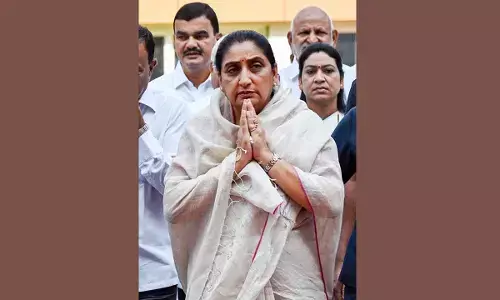Maharashtra tops in justice to people: IJR

For representational purpose
The second edition of the India Justice Report, India's only ranking of states on delivery of justice to people, ranks Maharashtra once again at the top of the 18 large- and mid-sized states
New Delhi: The second edition of the India Justice Report, India's only ranking of states on delivery of justice to people, ranks Maharashtra once again at the top of the 18 large- and mid-sized states (with a population of over one crore each), followed by Tamil Nadu, Telangana, Punjab and Kerala.
The list of seven small states (population of less than one crore each) was topped by Tripura, followed by Sikkim and Goa.
The India Justice Report (IJR) is an initiative of Tata Trusts in collaboration with the Centre for Social Justice, Common Cause, Commonwealth Human Rights Initiative, DAKSH, TISS–Prayas, Vidhi Centre for Legal Policy and How India Lives. The maiden IJR was announced in 2019.
Through a rigorous 14-month quantitative research, the India Justice Report 2020 once again tracks the progress states have made in capacitating their justice delivery structures to effectively deliver services to all. It takes account of latest statistics and situations as they existed prior to March 2020. It brings together otherwise siloed statistics from authoritative government sources, on the four pillars of justice delivery – Police, Judiciary, Prisons and Legal Aid.
The report highlights stark conclusions, when aggregated for an all-India picture. Women comprise only 29 per cent of judges in India. Two-thirds of the country's prisoners are yet to be convicted. In the last 25 years, since 1995, only 1.5 crore people have received legal aid, though 80 per cent of the country's population is entitled to.
Commenting on the report, Justice (retd.) Madan B. Lokur, said, "While ranking states, the report does not play up one state against another — it merely highlights the strengths and weaknesses of each pillar in each state thereby encouraging internal assessments for introducing positive changes in the delivery of justice. The report fosters competition between states but more importantly, places the state in competition with itself to provide its people with the best possible justice delivery."
N. Srinath, CEO of Tata Trusts, said, "The India Justice Reports of 2019 and now 2020 make a significant contribution to laying the evidence base for policy makers and civil society to initiate early improvements for the benefit of us all."
Shloka Nath, Head, Policy and Advocacy, Tata Trusts, said, "The India Justice Report assesses all the pillars of justice delivery – Police, Judiciary, Prisons and Legal Aid — as one system. The justice system in India is overburdened and stressed making it difficult for most people to access justice services. The report demystifies the system as a whole through statistics across the four pillars. We hope that like the first report, this second edition too, fosters a more informed discourse and perhaps most importantly, serves as a tool for policymakers, and other stakeholders to identify areas of quick repair."







